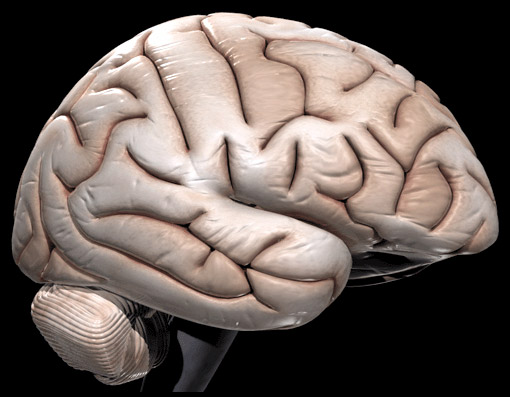Only one, but the lightbulb has to want to change…

This is the third part in a mini-series I have written about how looking after my mental health has led to improvements in my IBS. Mindfulness and CBT were both crucial in understanding and detecting my anxiety and depression, but in this piece I explore the added benefits of seeking the help of profession therapists and counsellors.
Over my life, I have used the services of six different counsellors or therapists. This might have been for only one or two sessions, or the best part of a year. Most of the time, though, they didn’t help. Why? Because I didn’t need them. Or didn’t know I needed them.
The title of this post isn’t just to inject a bit of humour into what can otherwise be a fairly terse topic. If the last few years have taught me anything about mental health, it’s that it can take a considerable amount of time and courage to a) realise you have a problem, b) admit it is a problem and c) do something about it.
Tackling my anxiety and depression has resulted in the biggest improvements in my IBS than any of the other interventions and treatments I have tried. However, it was only after many painful months of self-discovery, heartache and dark thoughts that I realised I had an issue and it needed dealing with.
I actually saw two therapists last year: a counsellor at work when I first started experiencing anxiety, and a psychotherapist privately after that. By the end of last year, though, I had realised that my therapist and I weren’t making any progress and decided to change to a third one in January. I have been seeing her weekly ever since.
The therapy has helped in different ways. When I was practising different mindfulness techniques, one therapists was able to give alternative suggestions for parts of my body to focus on: the book I was using recommended focussing on your chest as you breathed normally, but my anxiety centred on my chest. I couldn’t focus on the sensation of breathing in my chest when I had the gremlin of anxiety knotting me up inside.
It is also helpful to have someone other than a friend to talk to. I sometimes felt that I was testing the limits of many friendships by always using every meeting to get worries off my chest. Knowing I had someone I could talk through things with once a week meant I didn’t need to worry about when I was going to have to have someone to speak to about an issue. After a while, I also learned that those feelings pass and you don’t need to bottle them up inside you. The weekly wait instilled a sense of discipline in me that helped me to discover I could cope, and what that felt like.
But it isn’t easy. Therapists themselves need to undergo therapy to make sure they don’t bring any of their own baggage into their sessions with patients/clients. One friend, a therapist, commented that when she had psychotherapy, they broke her down, then built her back up again, before breaking her down a second time. It was a bit like that for me in the early stages: the uncomfortable, terrible realisation that I’d built my life around a falsehood. I remember going home after one session and crying uncontrollably; the very fabric of my universe having been torn from underneath me. This pithy online quote I found today sums it up perfectly: I used to have superpowers but then my therapist took them away from me.
My therapist also spent a lot of time in the early stages trying to pinpoint what I considered superficial things like “where did I feel anxious” and “where did I feel love”. It took me a while to realise what he was talking about and it took me several weeks, if not months, to realise that the knotted, excited feeling I used to get in my chest, that I used to associate with love and the adrenaline buzz of work, was actually one of my critical indicators of anxiety.
It has taken a very long time to reprogram myself to interpret my feelings in new, ‘correct’ ways; to recognise how I actually feel and what the associated physical experiences are. This has partly been achieved through CBT and mindfulness, but a lot of it required the help of the pros.
Typically, I have found my therapist useful for reassuring me that it is okay to feel certain ways: for example, in certain circumstances it is acceptable to feel annoyed, or anxious. But she’s also helped me to look at issues from a different angle. For instance, I used to suffer from a lot of guilt and shame. I’d scold myself for minor misdemeanours or mistakes repeating to myself that I “shouldn’t” have done that. She taught me to rephrase this into something more nurturing: “It would have been better if…”.
Another time, she told me that I was putting myself down. I’d been preparing for an exam and mentioned that I was frequently inventing excuses and reasons in my mind to justify the poor result I felt sure I would get. For me this was rational behaviour. To her, this was a sign that I didn’t have confidence in myself despite the evidence to the contrary. Since then, I have spotted numerous other times I do similar things. This has acted as another trigger to help me explore when I might be anxious, have low self-confidence or when I’m nervous about something.
As I said at the start, understanding and addressing all of this has led to tremendous improvements in my IBS. However, after almost a year of work with my current therapist, the most powerful thing I’ve gained it to learn to have more confidence in myself and what I can achieve. For many of us with IBS, we see our condition as a prison, prohibiting us from living the life we want. We seclude ourselves and don’t want to take risks for fear we won’t cope and our symptoms will get worse. With her help, I’ve learned to overcome this fear.
I realise now that I’ve suffered for anxiety for a long, long time. Symptoms that now seem so obvious – panic attacks as a child, nausea as a teenager, bladder problems at university and IBS in the workplace – were isolated, unexplained problems that I dealt with individually and, until I left the comfort of academia, were things I could by and large cope with. It was the big wide world of work that presented the newest, most uncomfortable challenges.
With my therapist’s help, I learned to spot the daily patterns of anxiety and depression, and construct a narrative that explained what was going on: I felt trapped in a job that I wasn’t enjoying, with a lack of purpose and ambition, but stuck around because I’d persuaded myself that the lifestyle and location were pretty comfortable. However, this meant a daily battle with anxiety as I forced myself to overcome the depression that sank in every day I travelled to work, and weekends and evenings I would fill with activities so I didn’t have to face the then undiagnosed anxiety. I did more and more, worked harder (confusing anxiety with the adrenaline buzz of trying to do too much) and played harder, until I literally couldn’t cope anymore. Doing too much was exacerbating my symptoms, doing nothing led to suicidal thoughts as my IBS got out of control.
It may sound cliche, but therapy has really changed my life. I now realise how I was being controlled by anxiety and depression. My therapist gave me the confidence to break out of this cycle, and to do so sooner than I thought I was ready for: this year I have applied to med school to become a doctor, hoping to specialise in and research gastrointestinal disorders. CBT and mindfulness might have helped teach me about my anxiety, but I don’t think they’d have given me the confidence to make the change I most needed to make. But, to be fair, up until now I wouldn’t have been ready to.
So what have I learned over the last year? In my case, IBS is strongly associated with anxiety and depression, and these are likely to be the root causes of my IBS as well. But I don’t think any of this (mindfulness, CBT or seeing a therapist) would have helped until I’d admitted to myself there was a problem and that I needed to fix it. Dealing with mental health problems is not simple and not quick. It takes persistence and hard work, where you will learn a lot about yourself. You will take small steps forward and then huge steps backwards at times, and you might be forced to face some unpleasant truths.
Sadly, therapy doesn’t come cheap, and is even more expensive in the bigger cities. It is an unavoidable travesty that the NHS can only typically fund short spells of therapy for patients and waiting lists can be huge. This was one reason why I went private. However, I consider it one of the best investments I’ve ever made.
Tips for finding a therapist:
- make sure they’re registered – http://www.counselling-directory.org.uk/ provides a searchable database of registered counsellors and therapists in the UK
- you may not have to go privately or with the NHS – many large employers and most universities will have a counselling service that will uphold the same levels of confidentiality
- if going privately, try and visit two or three different therapists before choosing who you want to work with
- while experience counts, rapport is better than lots of qualifications – I benefited more from a cheaper therapist
- don’t be afraid to change therapists if things aren’t working, but discuss this with your therapist first (this is equally acceptable if you’re seeing an NHS therapist)
- if you do decide to change, have some alternatives booked in already – therapy can be hard and draining, so it is easy to get out of the habit

